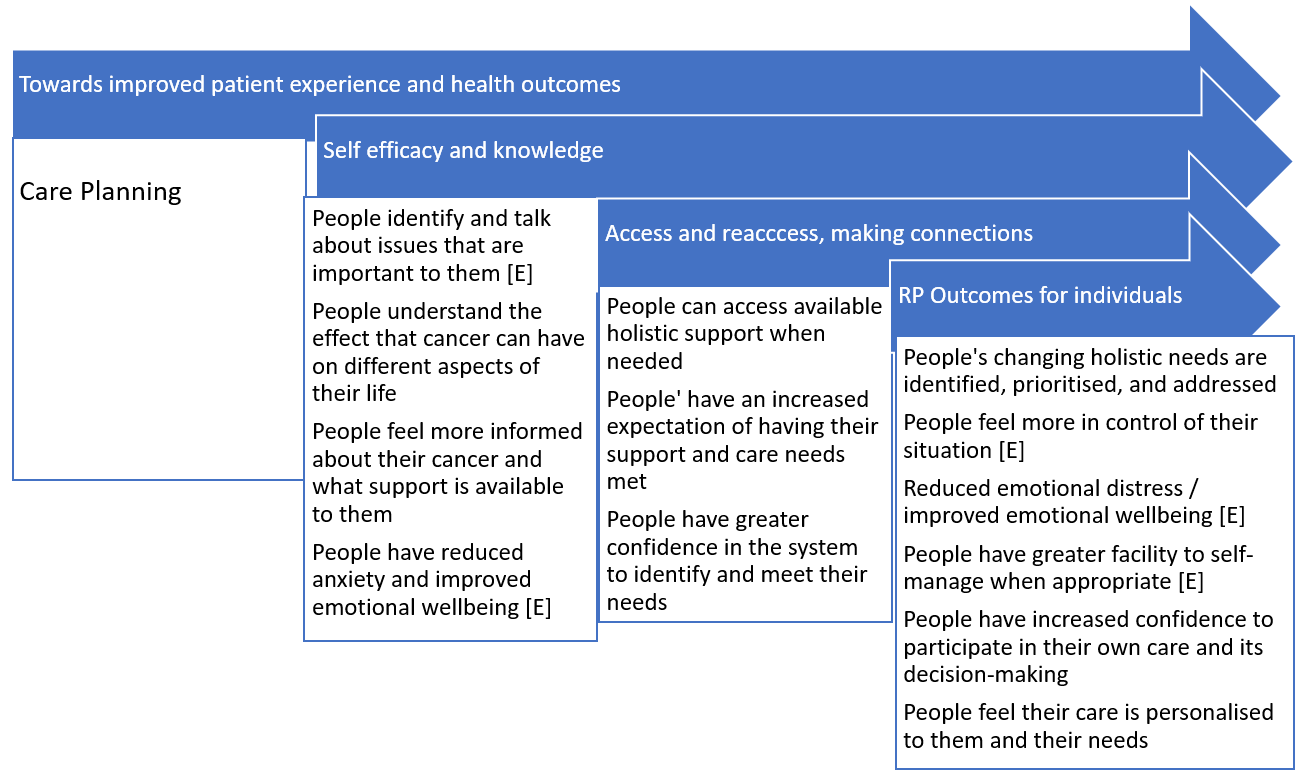
" I was offered it (HNA) right at the start but chose to complete it after the laser surgery to remove the tumour, as I wanted to wait and see what impact the surgery had had on my speaking and swallowing. It was fantastic that this assessment could be done at a time to suit me and that I had the choice. The eHNA gave me the opportunity to highlight concerns and be referred or signposted if necessary to lots if different sources of support, which I would have been completely unaware of without the assessment. It's so good to only have to tell your story once."
I thought it would be a good opportunity to feedback on my experience- which was not good. I thought that a 6 and a half week wait from my biopsy to results was excessive and this was a chance for me to sit with someone in a room and vent my frustration
My experience was as well handled as it could have been. The lady gave me a card about it [eHNA] and offered to contact me about it a few days later. She called and offered me a time for a meeting, but I didn't think I needed it. The hospital made it obvious that if I needed any support Icould contact them. It may just be a personal preference, but I felt at the at time that it would be easier just to get on with life.
I think I had the opportunity- but, fortunately for me, I suppose, none of them were relevant to me.
The great thing was- I knew very well that if I needed anything... and every time I've been to the
hospital I've asked and got the help I needed. The girls there have never not had the time to talk to
you- even though they're up to their necks in work- they've always had 5 minutes to talk to you.
Survey Question: What happened as a result of your HNA conversation?
Nothing, like I said, I sent it back in the post- but haven't heard anything since.
"My Macmillan Head and Neck nurse referred me to the welfare benefits adviser. She came to see me at my house, completed forms for me and was fantastic. (Head and Neck, Lincoln)"
My wife has got cancer and she has already been offered this by her nurse and it had really helped us, so when the nurse phoned me up- she sounded nice and I thought I might as well give it a go. I had no preconceptions about what it was- that word holistic means nothing to me- makes you think of holistic therapy- but the wife understood it and explained it to me. I think if you'd been sent something in the post- a bit like that concerns checklist you showed me- that would make more sense. (Prostate)
When you see the doctor they ask some of these questions- but not filling in a form. Nobody asked us about practical or spiritual concerns- there was no body for us to talk to once we'd been diagnosed. You saw the doctor- told you had cancer of the prostate and then sent off for treatment and passed onto oncology. The consultant is purely focused on the medical- then you're straight
into chemo.
Survey question: Do you think an HNA might be useful to you?
The problem you have is you are confusing patients. They don't know what they've got and you give them information that might never apply to them. In a nutshell, we are bombarded with booklets/ pamphlets all of which you have to give up reading because they scare you- and most of it might never happen. When I look at your HNA form or whatever it is- probably none of that has ever or will ever apply to me, but once I've seen it I start to think it might happen and I'm sure that scares people unnecessarily. I'm assuming that this is the same thing for every patient- whether you have prostate cancer or a brain tumour. I don't want to think about it because it might not happen. I need someone to tell me- this is what you've got. this might happen, when it happens we will deal with it. I would never want to be offered this.
Benefits taken from the Macmillan Outcomes Framework


© Copyright Recovery Package